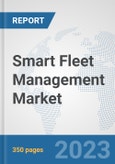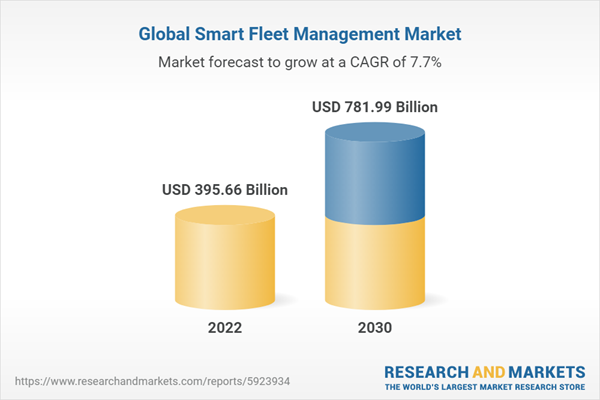Smart fleet management is a comprehensive approach to overseeing and optimizing vehicle fleets through the utilization of cutting-edge technology. This strategy involves the integration of various data-driven tools, like telematics systems and data analytics, to efficiently manage a range of critical aspects. These include monitoring fuel consumption, tracking mileage, evaluating driver behavior, scheduling maintenance, and ensuring regulatory compliance. The primary objective of smart fleet management is to enhance decision-making, improve operational efficiency, and prioritize vehicle and driver safety. It offers real-time insights and control over fleet operations, enabling real-time monitoring of vehicles, predictive maintenance, route optimization, and more. By leveraging this technology, organizations can reduce operational costs, minimize downtime, and minimize their environmental footprint through efficient resource allocation. In essence, smart fleet management is a valuable tool for organizations with extensive vehicle fleets, as it not only streamlines day-to-day operations but also fosters sustainability, cost savings, and enhanced safety, which are crucial in today's increasingly competitive and environmentally conscious business landscape.
Global urbanization and population growth are projected to increase by 23% by 2050, adding an estimated additional 2.5 billion people to urban areas during that time and doubling the demand for passenger mobility. Cities are similarly integrating IoT and information and communications technology into existing infrastructure to address public safety, traffic congestion, and environmental impact to improve the quality of life for their citizens. Furthermore, as cities expand, global supply chains become more complex and commerce meets the increasing demand. Maintaining today’s supply-based economy, with the complexity and diversity of supply chain risks, requires smart management tools. Therefore, Fleet operators will need greater flexibility to meet the changing demands of customers and to adapt in near-real time to weather conditions, traffic disruptions, and other events. Thus, the growth of the smart fleet management market is propelled by rapid urbanization and increasing population. Furthermore, Stringent regulations and environmental standards, aimed at reducing emissions and enhancing safety, propel the adoption of smart fleet management solutions. These technologies enable companies to monitor, optimize, and report on their fleet operations efficiently, ensuring compliance with government mandates while contributing to a more sustainable and environmentally responsible transportation ecosystem. However, concerns about the security and privacy of sensitive fleet data inhibit market growth. Worldwide, government leaders at various levels and public and private enterprises are increasingly embracing IoT and AI technologies to meet the demands of our interconnected global economy and tackle present-day transportation issues. Consequently, the integration of technological advancements such as AI and IoT presents an opportunity to enhance driver and road safety within the fleet management sector, with the potential to drive future growth in the smart fleet management market.
The Asia Pacific region commands a substantial share of the smart fleet management market, driven by its rapid economic growth spurring demand for transportation and logistics services. As urban areas expand, the necessity for efficient fleet management solutions grows. Additionally, governments in the region, like India, are increasingly endorsing smart fleet management solutions. China, being the largest market in the Asia Pacific, leads in harnessing AI's potential, aiming to unlock over USD 380 billion in economic value, primarily through advancements in autonomous vehicles, personalized services for vehicle owners, and fleet asset management optimization within the automotive and transportation industry. Additionally, North America is experiencing rapid growth in the smart fleet management market due to the increasing adoption of advanced technologies. The region's robust infrastructure, coupled with a focus on optimizing transportation and logistics, is driving the swift expansion of smart fleet management solutions, making it the fastest-growing market in this sector.
Report Findings
1) Drivers
- The growth of the smart fleet management market is propelled by rapid urbanization and increasing population.
- Stringent regulations and environmental standards, aimed at reducing emissions and enhancing safety, propel the adoption of smart fleet management solutions.
2) Restraints
- Concerns about the security and privacy of sensitive fleet data inhibit smart fleet management market growth.
3) Opportunities
- Integrating AI and IoT advancements enhances driver and road safety in fleet management, fueling future smart fleet management market growth.
Research Methodology
A) Primary Research
The primary research involves extensive interviews and analysis of the opinions provided by the primary respondents. The primary research starts with identifying and approaching the primary respondents, the primary respondents are approached include1. Key Opinion Leaders associated
2. Internal and External subject matter experts
3. Professionals and participants from the industry
The primary research respondents typically include
1. Executives working with leading companies in the market under review2. Product/brand/marketing managers
3. CXO level executives
4. Regional/zonal/ country managers
5. Vice President level executives.
B) Secondary Research
Secondary research involves extensive exploring through the secondary sources of information available in both the public domain and paid sources. Each research study is based on over 500 hours of secondary research accompanied by primary research. The information obtained through the secondary sources is validated through the crosscheck on various data sources.The secondary sources of the data typically include
1. Company reports and publications2. Government/institutional publications
3. Trade and associations journals
4. Databases such as WTO, OECD, World Bank, and among others.
5. Websites and publications by research agencies
Segment Covered
The global smart fleet management market is segmented on the basis of mode of transport, application, connectivity, operation, and solution.The Global Smart Fleet Management Market by Mode of Transport
- Roadways
- Marine
- Airways
- Railways
The Global Smart Fleet Management Market by Application
- Tracking
- ADAS
- Optimization
- Fuel Cards
- Automatic Vehicle Identification
The Global Smart Fleet Management Market by Connectivity
- Short Range
- Long Range
- Cloud
The Global Smart Fleet Management Market by Operation
- Private
- Commercial
The Global Smart Fleet Management Market by Solution
- Vehicle Tracking
- Fleet Optimization
Company Profiles
The companies covered in the report include- IBM Corporation
- Continental AG
- Robert Bosch GmbH
- HARMAN International
- Cisco Systems, Inc.
- Siemens
- CalAmp Corp.
- Sierra Wireless
- Avnet, Inc.
- SINTRONES Technology Corp
What does this Report Deliver?
1. Comprehensive analysis of the global as well as regional markets of the smart fleet management market.2. Complete coverage of all the segments in the smart fleet management market to analyze the trends, developments in the global market and forecast of market size up to 2030.
3. Comprehensive analysis of the companies operating in the global smart fleet management market. The company profile includes analysis of product portfolio, revenue, SWOT analysis and latest developments of the company.
4. Growth Matrix presents an analysis of the product segments and geographies that market players should focus to invest, consolidate, expand and/or diversify.
Table of Contents
Companies Mentioned
- IBM Corporation
- Continental AG
- Robert Bosch GmbH
- HARMAN International
- Cisco Systems, Inc.
- Siemens
- CalAmp Corp.
- Sierra Wireless
- Avnet, Inc.
- SINTRONES Technology Corp
Table Information
| Report Attribute | Details |
|---|---|
| No. of Pages | 350 |
| Published | December 2023 |
| Forecast Period | 2022 - 2030 |
| Estimated Market Value ( USD | $ 395.66 Billion |
| Forecasted Market Value ( USD | $ 781.99 Billion |
| Compound Annual Growth Rate | 7.6% |
| Regions Covered | Global |
| No. of Companies Mentioned | 10 |









